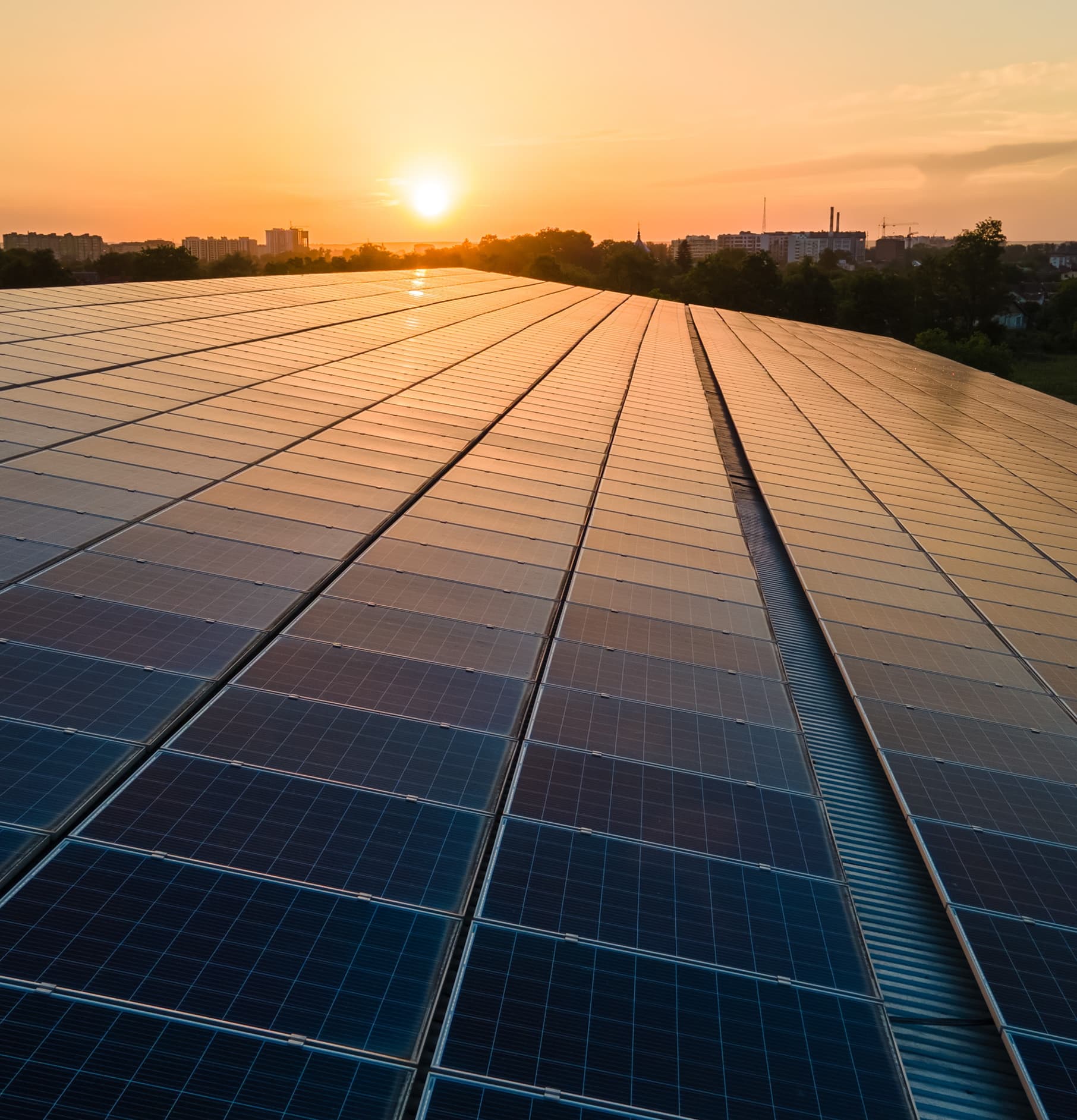
When looking to harness solar energy for commercial use, it’s common to wonder: “How much energy do solar panels generate?”
These remarkable devices convert daylight into electricity, offering businesses a sustainable power solution. The efficiency of solar panels, a critical measure of their ability to convert light into usable energy, varies significantly across the different types.
So, how much energy do solar panels generate?
The solar panel’s energy can significantly reduce electricity bills and carbon footprints, but how much power does a solar panel produce? This question matters for companies looking into how practical and big their potential solar energy projects can be.
Understanding Solar Panel Output
The power produced by solar panels is measured in kilowatts (kW), and their ability to generate electricity over time is measured in kilowatt-hours (kWh). The solar panel’s energy varies based on efficiency, size, and the daylight it captures.
Efficiency – Solar panels work at different levels of effectiveness, typically between 6% and 20%+, based on the panel kind. For example, monocrystalline panels are the most effective, frequently surpassing 20% efficiency. This indicates that they can convert 20% of the daylight they absorb into energy that can be used.
Size and Number – The overall output also depends on the size of the solar panel system installed. A higher number of panels – or panels with a higher wattage rating (e.g., 350W) – will produce more energy.
Daylight Exposure – The amount of direct light solar panels get affects their energy output and depends on the location, time of year, and weather. Panels in sunnier spots or angled correctly towards the sun (south-facing) will generate more energy.
Let’s break it down with an example:
In a standard business environment, imagine using 10 solar panels, each with a capacity of 350 watts, all made from monocrystalline material.
Together, they offer a maximum output of 3.5 kWp (kilowatt peak). Assuming the panels receive about 4 hours of solid sunlight daily, they can produce roughly 14 kWh daily, which adds up to about 5,110 kWh over a year.
Keep in mind that this is a basic estimate. Real energy production can differ due to the seasons, weather, and unique features of the location where they’re installed.
The importance of solar panels in business
Solar energy is an invaluable asset for businesses aiming to harness the power of direct sunlight for sustainable power generation.
The process minimises environmental impact by reducing greenhouse gas emissions and aligns with economic benefits through savings on electricity costs. Solar panel output is significantly influenced by weather conditions, ensuring that businesses can still generate substantial energy even on overcast days.
Environmental stewardship
Integrating solar arrays into your operations sends a powerful message about your priorities: you are willing to invest in technology that protects the environment, reduces carbon emissions, and promotes a sustainable future.
This commitment is recognised and appreciated by customers, who are more likely to support companies that align with their values of environmental stewardship. Partners and investors are also drawn to businesses that demonstrate a proactive approach to sustainability, recognising the long-term value and stability these practices offer.
Additionally, the visibility of solar arrays—often installed on rooftops or other prominent locations—symbolises a company’s dedication to green practices. This visibility can improve a company’s brand image and market position, attracting positive attention and goodwill within the community.
It also encourages other businesses to consider their environmental impact, fostering a culture of sustainability within the industry.
Financial savings
Economically, the initial investment in solar technology quickly proves worthwhile as companies witness a decline in their reliance on grid-supplied electricity, gaining protection against fluctuating energy prices.
The ability to generate excess energy and sell it back to the grid under schemes like the Smart Export Guarantee (SEG) in the UK further boosts financial returns.
This energy independence, coupled with the environmental and social advantages of a solar array, underscores the importance of solar energy in achieving operational stability and contributing to a greener economy.
Embracing solar power furthers global sustainability goals and offers a competitive edge in today’s eco-conscious market, making it a smart choice for businesses worldwide.
Embrace the power of commercial solar with Path Energy
When it comes to commercial solar energy for your business, think Path Energy. Our commercial solar solutions, including solar panels, battery storage, and optimisation technology, are designed to maximise your business’s potential for decades.
Our premium solar panels provide years of clean, cheap energy, our battery storage service ensures continued power during outages, and optimisation tech boosts efficiency, leading to cost savings and a sustainable future.
Experience the full spectrum of solar benefits and pave the way for a brighter, greener business journey with Path Energy!
Get a call back
Get a call back from our team
"*" indicates required fields